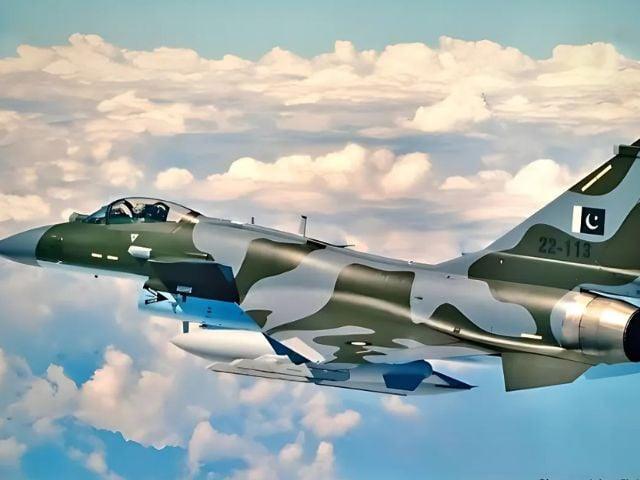Pakistan Air Force (PAF) detected four Indian burst hunting planes that patrol the control line (LOC) Tuesday evening, forcing them to withdraw after making a coordinated response, at night between April 29 and April 30.
Sources of security have said that the Indian jets patrolled in airspace on Jammu and Kashmir (Iiojk), an Aircraft PAF, detected their presence and responded quickly.
The tensions jumped between the two nuclear weapons neighbors following an attack in Pahalgam, located in Jammu-et-Cachemire occupied of Indian origin.
The attack, which occurred on April 22, cost the lives of 26 people, mainly tourists, by making one of the deadliest incidents in the region since 2000.
On April 23, India unilaterally suspended the Water Treaty in Indus (IWT), a critical water sharing agreement negotiated by the World Bank, which was held stable thanks to numerous conflicts between the two countries.
The next day, Pakistan retaliated by threatening to put Simla’s agreement in 1972 pending and closing its airspace with Indian flights.
India suggested that cross -border links may have been involved in the attack, although it has not provided concrete evidence. On the other hand, Pakistan has strongly denied any involvement.
Prime Minister Shehbaz Sharif called for an independent investigation into the incident to determine the truth.
Meanwhile, the Minister of Information, Atta Tarar, warned on Tuesday evening that Islamabad has credible information indicating that India could launch a military strike within 24 to 36 hours, using the recent attack by Pahalgam as a pretext.
The Minister criticized India’s approach, accusing him of assuming an “self-assigned role of the judge, the jury and the executioner” in the region, which was labeled as imprudent and destabilizing.
“Pakistan has suffered a lot from terrorism and understands the pain and the consequences of such violence,” added the press release, reaffirming the appeal of Islamabad to restraint and regional peace.




